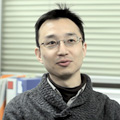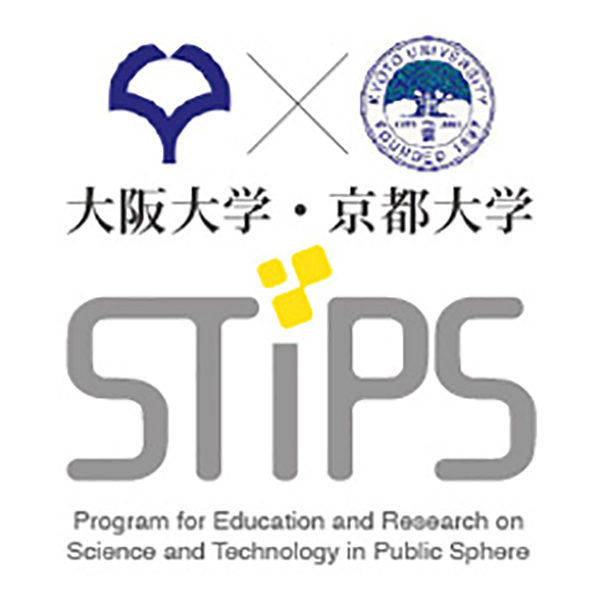Deliberative Caravan Interview
Advancing the Discussion by Listening to Reasons
World Wide Views in Japan, the citizen conference on global warming issues, was previously held at Osaka University, with CSCD members playing a central role. At the time, citizens debated questions pre-determined by the event organizers. However, some people were skeptical of this approach and expressed their desire to independently develop questions. Reflecting on this request, we held the Deliberative Caravan to enable a diverse set of people, including citizens, to derive the questions (the topics to be discussed in society, or an agenda).The Deliberative Caravan comprised three aspects: the Opinion Eliciting Workshop, the Agenda Formulation Meeting, and Agenda Utilization. Our discussion question creation began with asking people’s reasons for considering problems and what they were concerned about. Even if people’s concerns were the same, the reasons for concern differed between individuals. Furthermore, if people understand others’ reasons, it becomes easy to find common ground when opinions conflict. After all, discussions do not advance by merely stating opinions to each other.
The theme of the Deliberative Caravan was regenerative medicine. Ethical, legal, and social discussions surrounding the use of such technology have just begun, and aspects of it have not yet been institutionalized. Ample room exists for these debates to be updated by incorporating diverse people’s opinions. Therefore, I think it is meaningful for citizens to collectively consider these issues from the very beginning.
Decision Making by Knowing
I believe that the vast majority of the citizens who participated in the Deliberative Caravan had no knowledge about science and technology. However, I wanted them to feel that they could still discuss and have opinions about policies. Even if topics related to medicine involve many difficult words, it comes down to an issue of whether a certain therapy will be used on one’s grandfather, thus becoming a decision that people make in their daily lives.In the Opinion Eliciting Workshop, we instructed participants to submit a card on which they wrote what they considered to be “the most important thing” regarding regenerative medicine as well as their reason for thinking so. I use these cards in classes for graduate students to facilitate discussions. From the content of these cards, one can observe that many people have differing opinions. For example, opinions such as “Only rich people will benefit” and “Is happiness really being cured of disease?” rarely come from researchers, who tend to give precedence to technological progress. I want graduate students to become experts who can make decisions while respecting such ideas.
Further, the Deliberative Caravan facilitates communication not only between citizens and experts but also among citizens. For example, mothers often talk to other mothers in their neighborhood. Similarly, I spend most of my day talking to people from my workplace. In these circumstances, citizens themselves forget that they are a diverse group. I believe it is important that the Deliberative Caravan enables citizens to realize that they have their individual differences. Specifically, I want it to be a space in which people active in society, housewives, and senior citizens can learn together. As these people play a definitive role in decision making regarding the form science and technology take in society, I will be pleased if they expand their field of vision through this space and can help in decision making.
Simple Rules for a Sustainable Structure
Although the theme this time was regenerative medicine, we are planning to intermittently conduct other endeavors similar to the Deliberative Caravan that focus on various themes. Therefore, we have designed the Deliberative Caravan to be as simple as possible.As other structures exist through which people can conduct discussions based on significant amounts of accurate information, we are trying to enable people to discuss policies in a simpler fashion. We do not provide people with more information than is in the newspaper; instead of having an expert carefully provide information, we simply have experts briefly examine the content related to an issue. Thus, we reduce the amount of time and effort spent on developing materials for the gatherings. Moreover, citizens can also participate without advance preparation. We assume that by lowering the barriers to holding these events, we can offer more people the opportunity to consider issues and bring together the opinions that arise in the process.
Thus, we can quickly capture the opinions of citizens when there is an occurrence that society should debate, and such agility characterizes these events. I would like to continually conduct these events as spaces for citizens to communicate with each other while adopting the strengths of large-scale citizen conferences such as World Wide Views. In addition, I would like to improve on their weaknesses and have such conferences act in a complementary manner with us.
 |
● Yasunori Yamanouchi, Adjunct Assistant Professor Osaka University Center for the Study of Communication Design |
2014年02月28日公開 | Interview





